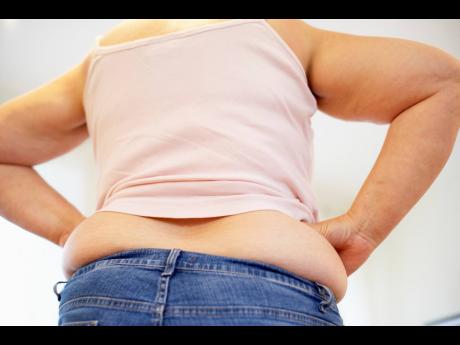Alfred Dawes | Going to the gym and not losing weight
This is a common problem encountered by many on a fitness programme. They work out sometimes to exhaustion and still cannot see the results on the scale. Oftentimes this leads to frustration and abandonment of the fitness lifestyle. Hormones are what get the blame in most instances, sometimes deservedly, but most times not. Here are a few reasons you are not seeing the results you want while exercising.
You are not in a Caloric Deficit
In order to lose weight you must be eating less than what you burn during resting, day-to day activities and exercise. The greatest contribution to burning calories is your resting metabolic rate. If this is lower than normal you will need way less calories than you think you need. Even if you are burning a significant number of calories in the gym you will be in a caloric surplus or balance if you overestimate your resting metabolic rate. Get it checked.
You are Building Muscles
If you are not losing weight but feeling your clothes getting looser, you are likely losing fat and building muscles. Muscles are less bulky at the same weight as fat, that is, muscle is denser than fat. So as you gain muscle, it will occupy less space in your clothes than the fat you have lost. At some point in your exercise programme, it is advisable to stop weighing constantly and use inches to monitor your progress.
You really do have hormonal problems
Some hormonal disturbances can cause you to store fat more easily. Chief among these is hypothyroidism. The thyroid is a small gland at the front of the neck that controls the speed of your metabolism. In hypothyroidism the gland does not produce enough thyroid hormones and the metabolism slows, leading to weight gain with fewer calories consumed. Treatment for hypothyroidism can result in weight reduction if this is found to be the case. Polycystic ovary syndrome (PCOS) is a fairly common condition experienced by younger women. The weight gain that is a part of the syndrome is linked to high insulin levels that store calories in fat and muscle. The excess fat in turn contributes to insulin resistance in a cycle that worsens weight gain. To break this cycle, one has to work harder to lose the weight and drop insulin levels.
Sleep Apnoea
Sleeping is extremely important to weight loss. While sleeping, the hormones that play a part in hunger and satiety are regulated. The stress hormone cortisol also falls during periods of restful sleep. When you do not enter restful sleep cycles these levels get disrupted and you get hungrier, eat more, and store the calories more easily. Sleep apnoea occurs when not enough oxygen gets to the lungs because of obstruction of the upper air passages or decreased breathing when sleeping. Fat storage around the neck can cause this, creating a vicious cycle where more fat deposits worsen the condition leading to greater weight gain. Treating sleep apnoea can improve weight loss. Conversely, losing weight can improve sleep apnoea.
Finding the root of your plateau is the key to successful weight loss. Get on it!
- Dr. Alfred Dawes is a general, laparoscopic and weight loss surgeon; Fellow of the American College of Surgeons; former senior medical officer of the Savanna-La-Mar Public General Hospital; former president of the Jamaica Medical Doctors Association. @dr_aldawes. Email feedback to columns@gleanerjm.com and adawes@ilapmedical.com

